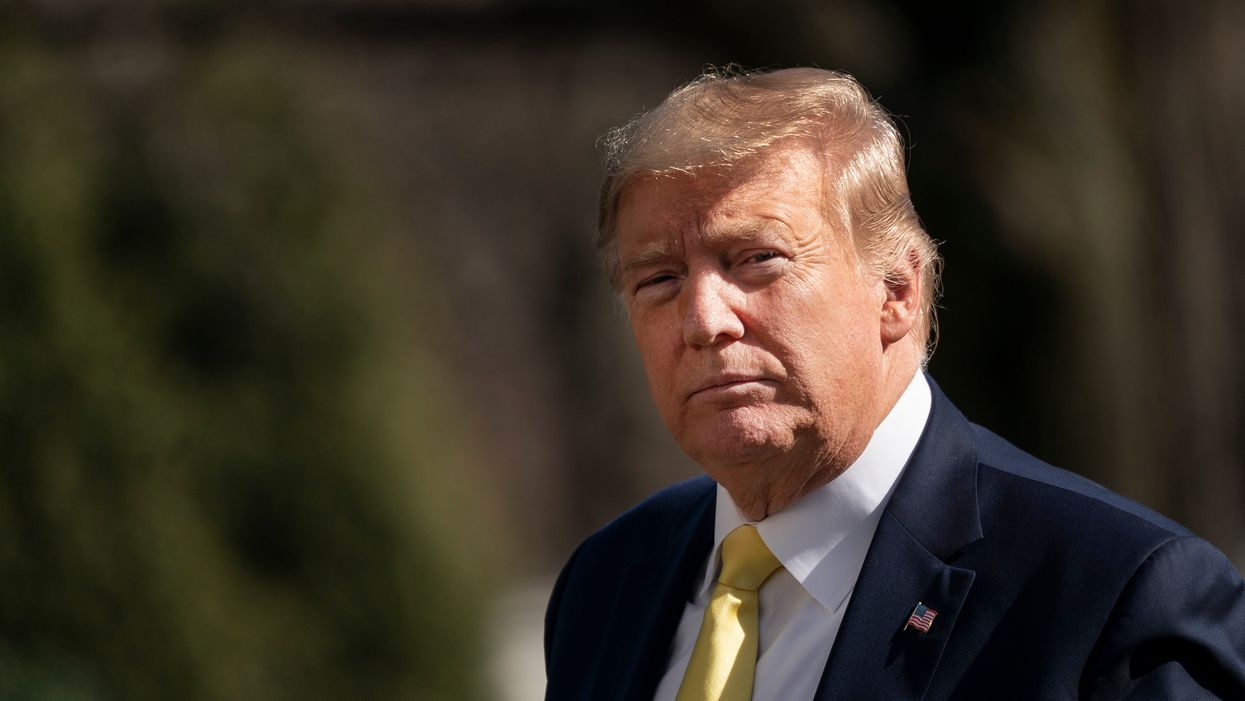Coleman was a Republican member of the House from Missouri from 1976 to 1993. He is a retired lobbyist and an advisor to the Protect Democracy Project, an anti-authoritarian watchdog group.
It is a bedrock American principle that no one, not even the president of the United States, is above the law. The president, like all Americans, must pay taxes, must give evidence when sought by a court or Congress, and must follow the law. If this principle is to survive, the D.C. Circuit Court of Appeals must reverse a ruling that Congress cannot sue to enforce subpoenas of executive branch officials.
In the wake of the report from special counsel Robert Mueller, last April the House Judiciary Committee subpoenaed former White House counsel Don McGahn to provide testimony about President Trump's efforts to obstruct the investigation of Russia's meddling in the 2016 election. The White House informed the committee that the president ordered McGahn not to appear, asserting that certain presidential aides are "absolutely immune" from being forced to testify — a privilege no other president has ever claimed. As a result, the committee sued to enforce its subpoena.
In February, a three-judge panel of the D.C. Circuit punted on the central question, ruling 2-1 their court does not have the power to settle this dispute between the congressional and executive branches. If that is allowed to stand, Congress' ability to conduct legitimate oversight will be severely limited and Trump will be further emboldened to ignore our constitutional system of checks and balances.
Fortunately, the full appeals court has agreed to review that ruling, starting with oral arguments April 28. I joined a bipartisan group of 96 former members of Congress and executive branch officials on a brief urging the full court to reverse the three judges. We all understand Trump's unprecedented stonewalling goes well beyond the sort of normal back-and-forth between branches during oversight discussions that we witnessed when we were in office. Allowing his behavior to continue without the potential of a judicial backstop would gut Congress' ability to effectively check executive overreach and lawbreaking.
There is one silver lining in the court's initial decision: Two of the three judges expressed deep skepticism about Trump's claim of "absolute immunity," which he's using to keep aides and former aides from testifying to Congress. The court's rejection of this argument is so important because, sadly, there are many examples of Trump's team trying to exceed the constitutional limits placed on the presidency.
In case after case, Trump has argued he cannot be held accountable. In three cases now before the Supreme Court he has argued that, not only can Congress not investigate him, neither can state nor federal law enforcement officials. The obvious question: Who can investigate presidential wrongdoing? The answer, according to the president: Nobody! Under his view, a president can break the law with impunity. Trump's attorneys even told a judge that the president could shoot someone dead and escape all legal consequences while in office.
These are dangerous arguments on their own, but the president and his lawyers are also concealing their true meaning by engaging in a dangerous shell game to evade accountability. For example, while the administration was telling federal courts — including the D.C. Circuit in the McGhan case — that they have no authority to enforce congressional subpoenas, the president's lawyers were simultaneously telling Congress it could not impeach Trump for obstruction of Congress because it should have relied on the courts to force the administration to turn over information.
One of the president's Senate impeachment trial lawyers, Alan Dershowitz, even claimed that "abuse of power and obstruction of Congress are outside the range of impeachable offenses." So according to the president, he can ignore congressional subpoenas even in the context of an impeachment proceeding and courts can do nothing about it, and he can't be impeached for it. Stripped down to its essence, this argument would mean that no one — not law enforcement, not courts, not Congress — may investigate him or hold him accountable for abuse of power.
The president's argument is radical and wrong. Our Founders did not create a presidency beyond the law, above any checks and balances, and answerable to no one but himself. Quite the opposite.
James Madison, frequently described as the "Father of our Constitution," would no doubt be joining our legal crusade if he were alive today. Our fourth president — like me, a former House member — recognized the human temptation to gather power. He anticipated Trump's arguments when he wrote in Federalist 48 that "the accumulation of all powers legislative, executive, and judiciary, in the same hands ... may justly be pronounced the very definition of tyranny."
The American answer to tyranny, of course, required our Founders to revolt against an unaccountable king. They wrote our Constitution to assure that they, and we, would live in a democracy. Our nation's history illustrates the president's claims to monarchical immunity are hollow and weak.
Americans who cherish our democratic system, and the checks and balances that sustain it, are depending on the courts to reject the president's repeated attempts to subvert the Constitution and the principle that — no matter your station in life — how high your office, how deep your pockets or how many lawyers you may have, the law applies to everyone.



















Trump & Hegseth gave Mark Kelly a huge 2028 gift